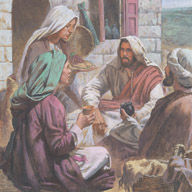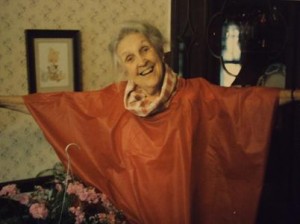Every widow friend of mine has wished her husband could come back, if only for a few minutes. We’ve all fantasized about how we would greet them, what we’d say, how we’d show love. Such a scenario is as captivating as a first date, and although we all know it can’t be, thinking about it is delicious.
This morning I was pondering the biblical Lazarus, a friend Jesus often stayed with between destinations. He enjoyed time with this pal and his two sisters, probably relaxing around a lamp-lit wooden table, telling of his travels. These four singles were close in heart and surely had fun together, too. Scripture twice says Jesus loved them.
When Lazarus got sick, the grieving sisters did what came naturally: they got word to Jesus. But Lazarus died before he could get there.
When Jesus finally came, Mary, Martha and a crowd of mourners had been grieving for four days. No doubt the sisters were thinking, “Oh, how we want our brother back, even for just a few minutes. He left so quickly we couldn’t even get Jesus here in time. If only we could talk with him again, hold onto him, somehow prevent his death.”
When Jesus arrived, Martha raced out to meet him with the same wish my widow friends and I have. “Jesus, you can do whatever you want! You could bring him back!” Although I haven’t met Martha, I know what she was thinking: “If you bring him back, you can heal him, and then he won’t have to die!”
But Jesus responded conservatively, reminding Martha that Lazarus would rise eventually. That wasn’t good enough for her, though. I picture her tugging on his arm, bouncing up and down saying, “Yes, yes, I know, but you know what I mean!”
Jesus calmly asked if she truly believed he was the way to heaven, and she says, “Yes, of course! I believe you! But…”
Racing back to the house, she grabs Mary and excitedly says, “Jesus is here! Hurry up!” And it’s Mary’s turn to rush out. While weeping, she voices the same longing as Martha but in a different way. “You could have prevented this! And you should have!”
Amazingly, Jesus gave the sisters what they wanted: their brother back.
What was life like for these siblings after that? Martha and Mary probably didn’t take their eyes off Lazarus, couldn’t stop asking questions. Most likely they touched him, took his hand, hugged him, told him they loved him, until he had to say, “Ok, girls. Enough already!”
I’ll bet they loved their brother with a nearly perfect love after having lost him, then gotten him back. How blessed they were with that rare opportunity to love flawlessly the second time around. And that’s what my widow friends and I long for, too, though we know it won’t happen for us.
But if wives could just get that second-chance love figured out the first time around, marriages could be radical examples of what God originally had in mind for husbands and wives.
Jesus called in a loud voice, “Lazarus, come out!” (John 11:43)





